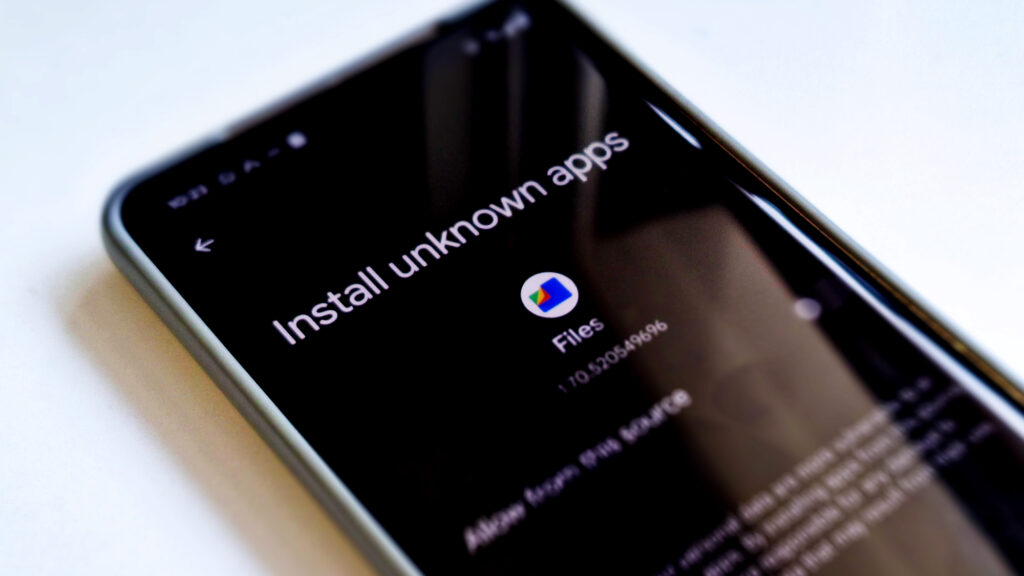Sideloading has emerged as a hot topic in the tech world, especially regarding Apple’s ecosystem.
This practice involves installing apps from sources outside the official App Store, raising questions about security, user experience, and innovation.
While Apple firmly opposes sideloading, citing various concerns, there are compelling arguments for its potential benefits, such as increased competition and consumer choice.
This article explores the nuances of sideloading, Apple’s stance on it, and what the future may hold for users and developers alike.

What is Sideloading?
Sideloading refers to the process of installing applications on a device directly from a source other than the official app store, such as the Apple App Store or Google Play Store. This practice allows users to access third-party apps that might not be available through conventional platforms, enhancing user autonomy and providing alternatives for software distribution.
However, it also raises important questions about digital rights, security, and user experience, especially within ecosystems that prioritize compliance with strict developer guidelines.
Explanation of the Concept
Sideloading allows users to install third-party apps that are not found on official app stores, offering greater flexibility within the digital ecosystem.
This method permits the installation of applications directly from sources outside the conventional app marketplaces, which can expand the choices significantly.
The process typically involves downloading an app’s APK file and manually installing it on a device, bypassing often stringent app review protocols.
For developers, this means they can reach users without undergoing the sometimes lengthy app submission processes required by major platforms.
Users must remain vigilant, as sideloading can expose devices to unverified software and security risks.
Navigating the balance between enhanced app variety and potential vulnerabilities is essential for maintaining a safe digital experience.
Apple’s Stance on Sideloading
Apple has consistently opposed sideloading on its iOS devices, arguing that it undermines platform integrity and user safety by increasing the risk of malware and security breaches.
Reasons for Disapproval
Apple disapproves of sideloading primarily due to concerns about security, as the introduction of unvetted apps increases the risk of malware, thereby affecting overall user experience.
By allowing third-party applications that have not undergone rigorous scrutiny, users could unknowingly expose their devices to harmful software that may compromise their personal data and privacy.
This rising threat poses significant challenges not only to individual users but also to the brand’s reputation and trustworthiness.
As tech giants strive to maintain secure ecosystems, apprehensions around malware infiltrating devices lead to a tighter control environment, reinforcing the notion that a more curated app store ensures a safer, more reliable experience for those who rely on this technology daily.
Potential Benefits of Sideloading
Despite its risks, sideloading offers potential benefits such as increased competition, greater consumer choice, and opportunities for innovation, enhancing the overall app diversity within the digital ecosystem.
Increased Competition and Innovation
Sideloading can stimulate competition among developers, leading to innovative apps that may challenge the status quo of app stores.
This practice opens the door for smaller, independent developers to introduce creative solutions that might not fit within the confines of traditional app store regulations. By bypassing these limitations, developers can experiment with unique features and functionalities, fostering an environment where innovation flourishes.
Consequently, this not only enriches the choices available to consumers but also prompts larger companies to rethink their market strategies, as they may need to adapt to these emerging alternatives. Ultimately, this heightened competition can drive advancements in technology and user experience across the entire app ecosystem.
Consumer Choice and Control
Sideloading enhances consumer choice and user give the power toment by allowing access to a broader range of app alternatives that are not confined to official app stores.
This practice not only opens the door to innovative applications but also encourages a more diverse ecosystem where developers can flourish outside traditional constraints.
By choosing to sideload, users can explore apps tailored to specific needs, thereby enriching their digital experience. This capability underscores the importance of digital rights, reminding consumers that they have the autonomy to make choices about their devices and the software they utilize.
The ability to sideload also highlights the critical role of accessibility, enabling users to obtain applications that may be restricted due to geographical limitations or stringent policies set by platform providers.
The Future of Sideloading on Apple Devices
The future of sideloading on Apple devices remains uncertain, especially as tech regulations evolve and the balance between user freedom and platform security is continually debated.
Possible Changes and Implications
Possible changes to sideloading policies could significantly impact user safety and the overall ecosystem of app development, necessitating compliance from both users and developers.
These adjustments might create a framework where users are better protected against malicious apps while also ensuring that developers adhere to stricter guidelines for app submissions.
By enhancing compliance requirements, the industry can foster a climate of trust, ultimately benefiting users who rely on a safe app environment.
It is essential to consider how such policy revisions could affect innovation within the app ecosystem, as overly rigid regulations might stifle creativity among developers trying to deliver unique functionalities.
Balancing user protection with the freedom for developers to innovate will be crucial moving forward.